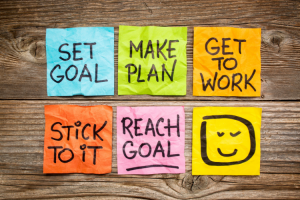
What Does It Take to Be an Entrepreneur?
Uncover the mindset, skills, and accountability tools every entrepreneur needs
The Accountability Guy®

Whether it is your personal or professional life, nothing can be accomplished to its fullest without the habit of accountability.
This is the one key element that helps glue all your hard work and efforts together to reach your goals. Being accountable means living a life of integrity with your words, thoughts and actions.
But don’t get it mixed with commitment or responsibility! Because accountability helps to ensure long-term success in your future and triumph over your little inner critic.
And while accountability might sound easy to follow, it is a habit that is difficult to achieve. But, it is still achievable. However, it might help if you first started with the definition of accountability and followed the ten best examples.
So, make sure to stick around until the very end of this feature!

Discover your Accountability Score and increase the probability of smashing your GOALS and Getting Sh!t Done!
When people come across the word “accountability”, they often picture themselves “getting caught” for doing something dicey, or ratting out other people, or even establishing a set of strict rules for people to follow.
This pessimistic idea of accountability often drives people to understand it as a toxic control culture through rules. However, there is a better way to put this.
Accountability (whether at home or work) is all about holding everyone at the same expectation level. You could be a top C-suite executive or a part-time employee who works by the hour; accountability will keep people of all positions at the same level and motivate them to accomplish the primary goal.
Undoubtedly, accountability at the workplace is critically important. However, the actual act of accountability starts from within. This is called personal accountability, which means taking responsibility for everything that happens in your life.
By fostering this habit in your life and workplace, you can get high-performance work to help you reach the top!
Listed below are a few excellent examples of being accountable:
Here is what accountability does NOT look like:
If you want to become more accountable to yourself, you need to devise your action plan. This differs from person to person; however, if you need a helping hand, feel free to follow this 9-step plan to becoming more accountable.
While accountability might not be an easy practice to start, it can still do wonders for your life. By taking the right steps and following the examples mentioned earlier, you too can become a role model for accountability in no time!

Darren Finkelstein, The Accountability Guy®, is the founder of TICK THOSE BOXES, a specialised accountability coaching practice. Darren is a formidable international accountability coach, business advisor, mentor, and author/speaker, fostering development and measurable results in entrepreneurship, leadership, and accountability. Darren’s tale is one of perseverance, self-reinvention, and resilience.
With compelling execution, Darren has empowered high-achieving individuals and teams from Australia and New Zealand to Latin America, Europe, Asia, the UK, and the US to embrace accountability; after all, it is your superpower.
Darren’s one-on-one and group coaching programs are based on his bestselling business book, “The Accountability Advantage – Play your best game” and the latest, release “NO’ – Building a life of choice without obligation”.
Darren has an impressive background in business, having held the role of “Manager of Commercial Markets” at Apple Australia during the Steve Jobs revolution.
He enthusiastically “walks the talk,” having also successfully sold and exited his lifestyle businesses, which served as the impetus for establishing his coaching and mentoring business.
Join Darren on this transformative quest to accomplish the remarkable.
Read Darren’s full bio here:
https://tickthoseboxes.com.au/about/

Know what to do first

know what to do next

know what to do more of

Uncover the mindset, skills, and accountability tools every entrepreneur needs

Discover the true meaning of accountability and how it impacts

Learn effective strategies to Hold Employees Accountable, from setting clear

Discover 8 powerful ways to stay accountable to your financial

Learn how to Demonstrating Accountability in Business using our practical

What Does Taking Accountability Mean? Learn how owning your actions
Navigation
Learn More
Contact
Social Media
Copyright Darren Finkelstein 2022 | Privacy Policy | Terms and Conditions